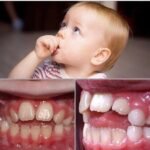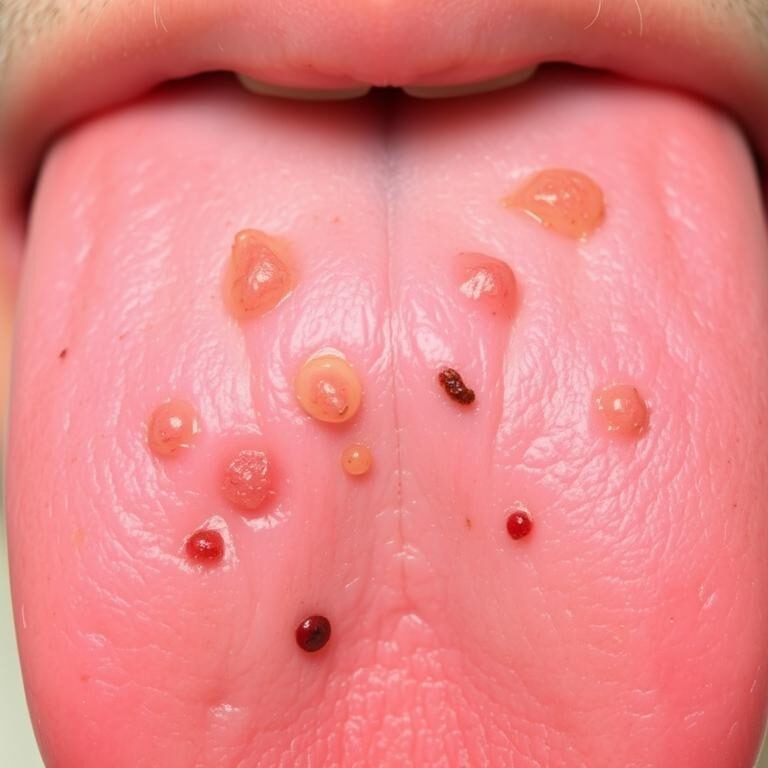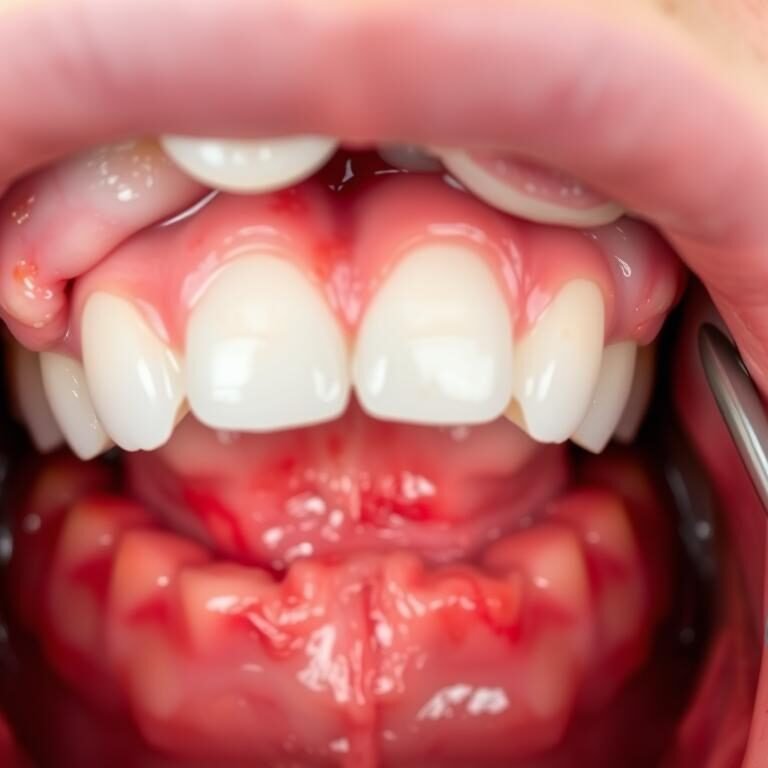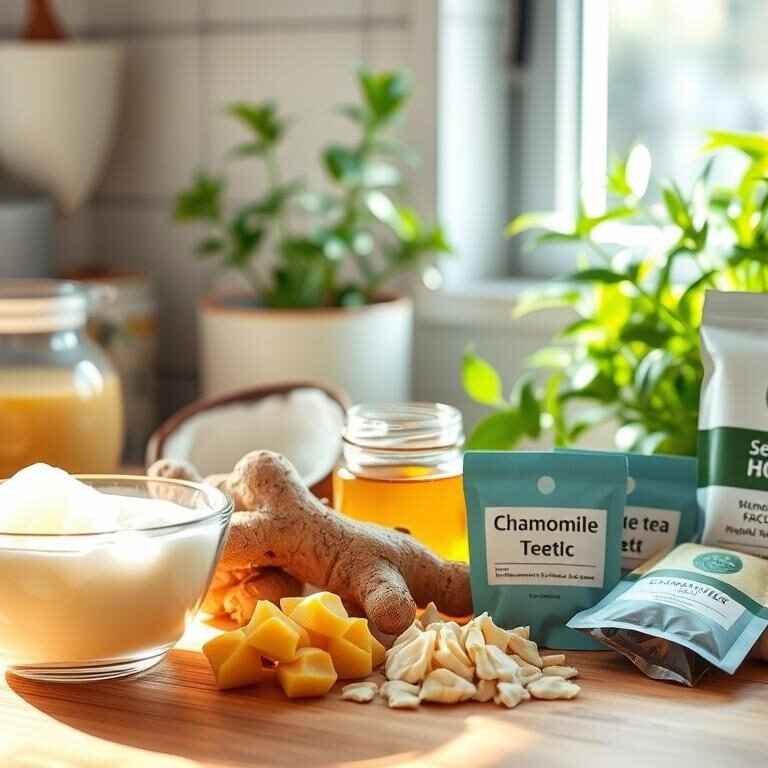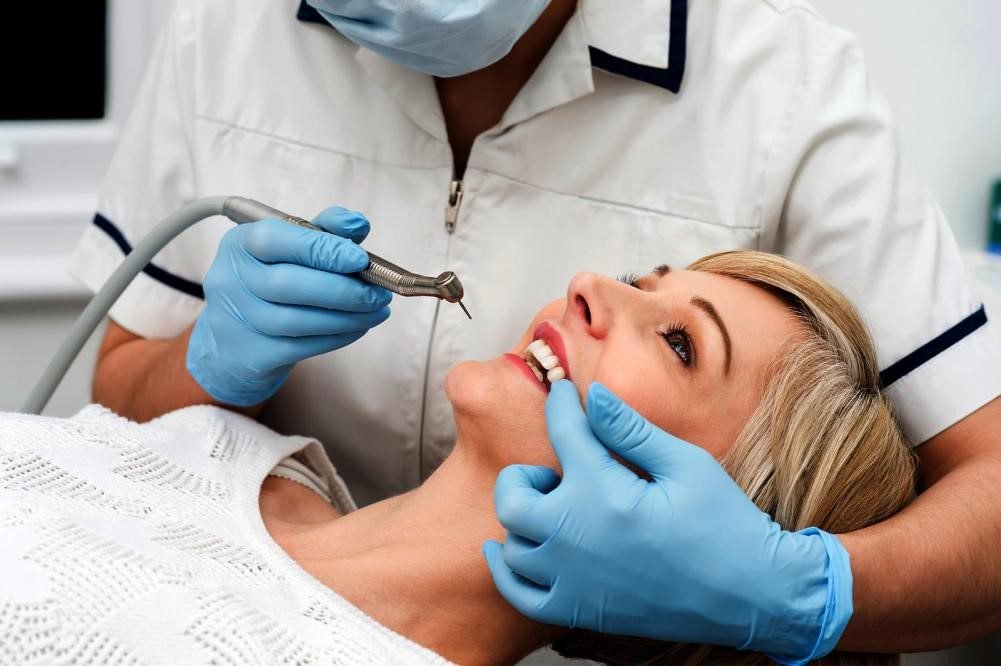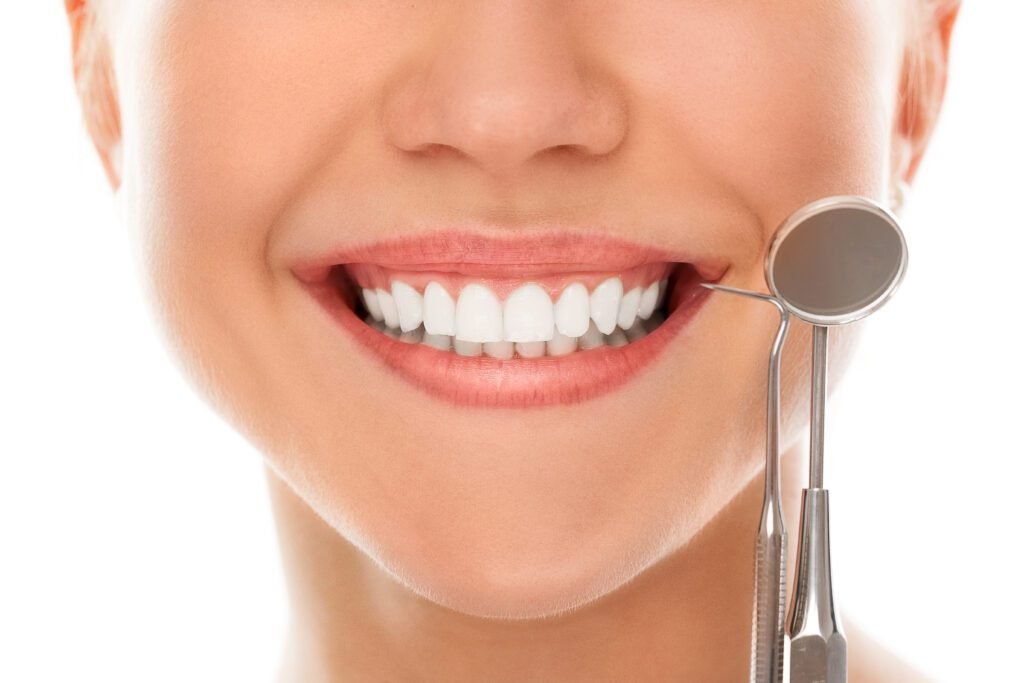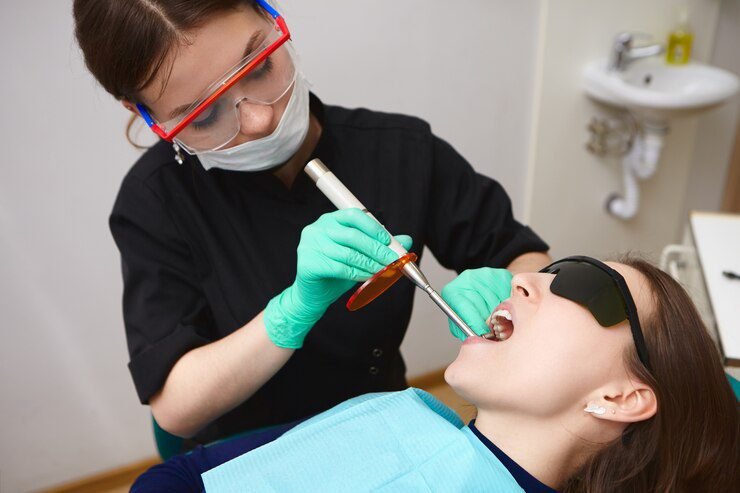Table of Contents
Understanding the Ingredients in Lip Balm and Their Effects on Your Oral Health
Lip balm is a commonly used product that aims to moisturize and protect the lips. However, it’s important to understand the ingredients in lip balm and their effects on your oral health. Many lip balms contain ingredients such as petrolatum, beeswax, and various oils, which can provide a barrier to lock in moisture and prevent dryness. These ingredients work together to create a protective layer on the lips, helping to prevent chapping and cracking.
While lip balms can be beneficial for maintaining lip health, it’s important to be aware of certain ingredients that may have potential negative effects. Some lip balms contain fragrances, flavorings, and preservatives that can cause irritation or allergic reactions in some individuals. Additionally, certain ingredients like menthol and camphor may provide a cooling or numbing sensation but can also lead to dryness or irritation in some cases. It’s important to read the ingredient list and choose lip balms that are free from potential irritants if you have sensitive skin or are prone to allergies.
| Ingredient | Effects on Oral Health |
|---|---|
| Petroleum Jelly | Forms a barrier to lock in moisture, may cause buildup |
| Beeswax | Provides a protective layer, generally safe |
| Lanolin | Moisturizes lips, may cause allergic reactions in some |
| Shea Butter | Moisturizes and nourishes lips |
| Coconut Oil | Moisturizes, has antimicrobial properties |
| Vitamin E | Antioxidant, helps repair damaged skin |
| Aloe Vera | Soothes and moisturizes, may help with healing |
| Camphor | Provides a cooling sensation, may cause irritation |
| Menthol | Provides a cooling sensation, may cause irritation |
| Salicylic Acid | Exfoliates dead skin cells, may cause irritation |
| Flavoring Agents | Adds flavor, may contain artificial ingredients |
| Sunscreen Agents | Protects lips from UV damage |
| Preservatives | Extend shelf life, may cause sensitivities |
The Science Behind Lip Balm and Its Potential Benefits for Your Lips
Lip balm is a common product that many people use daily to keep their lips moisturized and protected. But have you ever wondered about the science behind lip balm and how it benefits your lips? Let’s delve into the topic and explore the potential advantages of using lip balm.
Lip balm primarily works by creating a barrier on the surface of your lips, sealing in moisture and preventing it from evaporating. This barrier helps to keep your lips hydrated, especially in dry or cold environments. Additionally, lip balms often contain soothing ingredients such as shea butter or coconut oil, which can help alleviate dryness and provide a soothing sensation.
Furthermore, lip balms often contain ingredients like beeswax or petrolatum, which act as occlusives. These ingredients create a protective layer on your lips, shielding them from external factors like wind, sun, and harsh weather conditions. This protection is particularly beneficial for individuals with sensitive or easily irritated lips.
In conclusion, the science behind lip balm reveals its potential benefits for keeping your lips moisturized and protected. By understanding how lip balm works and choosing products with nourishing ingredients, you can maintain healthy and comfortable lips. However, it is important to note that using lip balm should supplement, not replace, a well-rounded oral care routine.
Exploring the Connection Between Lip Balm Usage and Dryness of the Lips
Lip balm is a popular product used by many individuals to relieve dry and chapped lips. However, there is a growing concern regarding the connection between lip balm usage and the persistence of lip dryness. Some individuals may find themselves constantly reaching for their lip balm throughout the day, only to find that their lips remain dry and even more dependent on the product.
One potential explanation for this phenomenon is that certain ingredients commonly found in lip balm can actually contribute to the drying effect on the lips. Ingredients such as menthol, camphor, and salicylic acid, which provide a cooling and soothing sensation, may initially provide some relief but could eventually lead to a cycle of dependency. These ingredients have a potential to strip the lips of natural oils, resulting in further dryness. Additionally, certain types of lip balms that create a barrier on the lips can prevent the natural moisture from being absorbed, leading to a lack of hydration and perpetuating the sensation of dryness.
Understanding the potential connection between lip balm usage and dryness of the lips is crucial in order to make informed choices about oral care routines. As a dental healthcare provider, it is important to educate patients about the potential effect of certain ingredients and suggest alternatives that offer long-term benefits. Further research is needed to fully comprehend the underlying mechanisms, but in the meantime, individuals may consider opting for lip balms with natural ingredients that promote moisturization and nourishment without causing dependency or exacerbating dryness. By choosing the right product and adopting a balanced approach to lip care, it is possible to achieve healthy and well-hydrated lips.

How Lip Balm Can Influence Your Oral Microbiome and Overall Oral Health
Lip balm has become a staple in many people’s daily routine, providing moisturization and protection for the lips. However, its impact on the oral microbiome and overall oral health is a topic of much interest and discussion. The oral microbiome refers to the community of microorganisms that reside in the mouth, playing a crucial role in maintaining oral health and preventing oral diseases.
One of the concerns surrounding lip balm usage is its potential to disrupt the natural balance of the oral microbiome. The ingredients found in lip balm, such as emollients, fragrance, and preservatives, can create an environment that is conducive to the growth of harmful bacteria. This imbalance may lead to oral health issues such as bad breath, gingivitis, and even tooth decay. Maintaining a healthy oral microbiome is essential for overall oral health, and understanding the impact of lip balm on this delicate ecosystem is crucial.
The Role of Lip Balm in Protecting Your Lips from Harsh Environmental Factors
Lip balm plays a crucial role in protecting your lips from the harsh environmental factors that you encounter on a daily basis. When exposed to extreme temperatures, wind, and UV radiation, your lips can become dry, cracked, and susceptible to damage. This is where lip balm comes to the rescue, acting as a barrier between your delicate lip skin and the elements.
The main function of lip balm is to provide moisture and hydration to your lips, preventing them from drying out and becoming chapped. It contains ingredients such as beeswax, shea butter, and coconut oil that help to seal in the natural moisture of your lips, keeping them soft and supple. Additionally, many lip balms also contain SPF (sun protection factor) to shield your lips from the harmful ultraviolet rays of the sun, which can lead to sunburn and even skin cancer.
By regularly applying lip balm, especially before heading out into harsh weather conditions, you can ensure that your lips remain protected and maintain their health and appearance. So next time you step outside on a windy day or spend prolonged periods in the sun, don’t forget to reach for your trusty lip balm and shield your lips from the damaging effects of the environment.
Examining the Potential Side Effects of Lip Balm on Your Oral Health
Lip balm is a popular product used by millions of people worldwide to moisturize and protect the lips. However, like any product, it is important to be aware of its potential side effects, particularly on oral health. While lip balm may offer temporary relief and hydration to dry and chapped lips, excessive and prolonged use can lead to a variety of oral health issues.
One potential side effect of lip balm on oral health is dependency. Some individuals become reliant on lip balm and feel the need to apply it frequently throughout the day. This can lead to a decrease in the natural moisture production of the lips, as the body becomes dependent on the external hydration provided by the lip balm. As a result, the lips may become even more dry and chapped when the lip balm is not applied, creating a cycle of dependency.
Another potential side effect of lip balm is the development of allergic reactions or sensitivities. Lip balms often contain various ingredients, such as fragrances, preservatives, and dyes, which can cause irritation or allergic reactions in some individuals. Symptoms may include redness, swelling, itching, and even blistering of the lips. It is important to carefully read the ingredients list of lip balms and avoid those that may trigger an allergic reaction. If any adverse reactions occur, it is recommended to discontinue use and consult a healthcare professional.
In conclusion, while lip balm can provide temporary relief and protection for dry and chapped lips, it is important to be aware of the potential side effects on oral health. Dependency on lip balm may decrease the natural moisture production of the lips and lead to a cycle of dependency. Additionally, some individuals may develop allergic reactions or sensitivities to the ingredients in lip balm. It is important to use lip balm in moderation and choose products with minimal irritants to maintain optimal oral health.
Debunking Common Myths and Misconceptions About Lip Balm and Oral Health
There are numerous myths and misconceptions surrounding the use of lip balm and its impact on oral health. Let’s debunk some of these misconceptions and separate fact from fiction.
One common myth is that using lip balm regularly can make your lips dependent on it, causing them to become even drier without it. However, this is not true. Lip balm works by providing a protective layer to lock in moisture and prevent evaporation. It does not interfere with your lips’ natural ability to produce moisture. In fact, using lip balm can actually help hydrate and restore your lips, making them less prone to dryness.
Another misconception is that lip balm can cause your lips to become addicted to it. This notion is unfounded. Lip balm addiction is not a recognized medical condition. While some individuals may develop a habit of frequently applying lip balm, it is typically due to personal preference or the sensation it provides. Your lips do not become physically dependent on lip balm, and it is safe to use as needed to keep your lips moisturized.
It’s important to separate these myths from the facts to make informed decisions about your oral health. By understanding how lip balm works and its actual effects on your lips, you can confidently incorporate it into your daily routine without any undue concerns.
| Myth/Misconception | Debunking |
|---|---|
| Lip balm addiction is a serious concern. | Lip balm addiction is not recognized as a medically serious issue. It’s more of a psychological dependence, not physical. |
| Lip balm makes your lips more chapped over time. | Certain lip balms with irritating ingredients or drying agents might cause dependency, but not all lip balms are harmful. |
| Lip balm ingredients are harmful if ingested. | Most lip balms are formulated with safe ingredients. However, avoid lip balms with harmful chemicals and opt for natural ingredients when possible. |
| Lip balm contains ingredients that dry out lips. | Some lip balms contain ingredients like menthol or camphor that can initially provide a cooling sensation but might lead to drying out lips in the long run. |
| Using lip balm reduces the natural moisture of lips. | Quality lip balms help lock in moisture, preventing lips from drying out. They don’t interfere with the natural moisturizing process of lips if used appropriately. |
| Frequent use of lip balm weakens lip muscles. | There’s no evidence to suggest that using lip balm weakens lip muscles. Muscles around the lips are not significantly impacted by lip balm usage. |
| Lip balm application leads to dependency. | While excessive reliance on lip balm can lead to feeling like you need it more often, it doesn’t create a physiological dependence like addictive substances do. |
How Frequent Lip Balm Application Can Impact Your Lip’s Natural Moisture Production
Frequent application of lip balm can have a significant impact on your lip’s natural moisture production. Many individuals rely on lip balm to provide instant relief and hydration to their dry lips, especially during harsh weather conditions. However, excessive and constant use of lip balm can actually hinder the natural moisturizing process of your lips.
The frequent application of lip balm creates a cycle of dependency, where your lips become reliant on the external moisturizing properties rather than producing their own natural oils. Over time, this can lead to a decrease in the production of natural lip moisture, resulting in a greater need for continued use of lip balm. It is important to understand that the delicate balance between the external application of lip balm and your lip’s natural moisture production is crucial to maintaining healthy and hydrated lips.
To break this cycle, it is advisable to minimize the frequency of lip balm application and allow your lips to regain their ability to produce natural moisture. Additionally, it is essential to choose a lip balm that promotes the hydration and nourishment of your lips without creating dependency. Opt for lip balms that contain ingredients such as beeswax, shea butter, or natural oils that provide long-lasting hydration while helping your lips restore their natural moisture production. By finding the right balance between lip balm application and your lip’s natural moisture production, you can ensure the overall health and well-being of your lips.
The Relationship Between Lip Balm Addiction and Oral Health Issues
Lip balm addiction is a growing concern that can have negative implications for oral health. While lip balm is intended to provide relief and hydration to dry lips, excessive and habitual use can lead to dependency on the product. This addiction can arise from various factors, such as psychological dependence, the belief that constant application is necessary, or even the rewarding sensation of applying lip balm.
One of the major issues associated with lip balm addiction is the potential for decreased natural moisture production in the lips. When lip balm is applied excessively, it can create a barrier that prevents the lips from producing their own natural oils. As a result, the lips become reliant on the constant application of lip balm to stay moisturized, leading to a vicious cycle of dependency. Over time, this can lead to weakened lip tissue and a decreased ability to retain moisture naturally. Consequently, individuals with lip balm addiction may find that their lips feel even drier and more chapped when they cease using lip balm momentarily.
It is important to address lip balm addiction promptly to avoid potential oral health issues. By seeking professional advice from a dentist or healthcare provider, individuals can receive guidance on breaking the cycle of lip balm dependency and restoring their lips’ natural moisture production. Additionally, implementing proper lip care habits, such as staying hydrated, using gentle exfoliation techniques, and choosing a high-quality lip balm sparingly, can help maintain healthy lips without becoming reliant on excessive product usage. By understanding the relationship between lip balm addiction and oral health issues, individuals can take proactive steps to care for their lips and overall oral well-being.
The Importance of Choosing the Right Lip Balm for Optimal Oral Health
Choosing the right lip balm is crucial for maintaining optimal oral health. When it comes to oral health, many people tend to overlook the importance of caring for their lips. However, our lips play a vital role in our overall oral health, protecting the delicate skin and underlying tissues from external factors such as cold weather, dry air, and harmful UV rays.
A high-quality lip balm not only moisturizes and nourishes the lips but also provides a protective barrier against these environmental factors. It helps prevent dryness, chapping, and cracking, which can lead to discomfort, pain, and even sores. Moreover, a good lip balm can enhance the elasticity and softness of the lips, giving you a healthier and more youthful appearance. Therefore, it is important to choose a lip balm that suits your specific needs and preferences to effectively maintain optimal oral health.
To choose the right lip balm, consider factors such as the ingredients, formulation, and SPF protection. Look for lip balms that contain natural and hydrating ingredients like beeswax, shea butter, cocoa butter, or coconut oil. These ingredients have moisturizing properties that help to retain moisture in the skin, protecting it from dryness. Additionally, lip balms with SPF protection are essential to shield your lips from the damaging effects of the sun’s ultraviolet (UV) radiation, which can lead to sunburn, premature aging, and even an increased risk of lip cancer.
In conclusion, selecting the right lip balm is vital for maintaining optimal oral health. By choosing a lip balm that contains nourishing ingredients and provides adequate protection, you can prevent dryness, chapping, and even serious lip conditions. Remember to read the labels, consider your individual needs, and consult with your dentist or healthcare professional for personalized recommendations. With the right lip balm, you can keep your lips healthy, moisturized, and ready for any challenge that comes their way.

Tips and Recommendations for Proper Lip Balm Application
Proper application of lip balm is crucial for maintaining healthy and moisturized lips. Here are some tips and recommendations to ensure that you get the most out of your lip balm:
1. Exfoliate before applying: Before applying lip balm, gently exfoliate your lips to remove any dead skin cells. This will allow the lip balm to penetrate and moisturize the lips more effectively.
2. Apply a thin layer: It’s important to apply lip balm in a thin, even layer. Applying too much lip balm can cause the product to build up and prevent your lips from breathing. A thin layer will provide adequate protection and prevent excessive product buildup.
3. Choose the right formula: There are various types of lip balms available, including wax-based, petroleum-based, and organic. Consider your specific needs and preferences when selecting a lip balm formula. For example, if you have sensitive skin, opt for a hypoallergenic or organic lip balm.
4. Reapply as needed: Lip balm wears off throughout the day due to eating, drinking, and talking. To maintain optimal moisture, reapply lip balm as needed. A good guideline is to reapply every 2-3 hours or whenever your lips feel dry or chapped.
5. Protect your lips from the sun: Look for a lip balm that contains SPF to protect your lips from harmful UV rays. Apply a lip balm with SPF before going outdoors, especially during intense sun exposure like in the summer months or at high altitudes.
By following these tips and recommendations, you can ensure that your lip balm application is effective in keeping your lips soft, hydrated, and protected. Remember, healthy lips contribute to your overall oral health and should not be overlooked in your daily skincare routine.
How to Identify and Address Allergies or Sensitivities to Lip Balm
Allergies or sensitivities to lip balm can be quite common and can cause discomfort and irritation to the lips. Identifying these allergies or sensitivities can be the first step in addressing the issue and finding a suitable alternative.
If you suspect that you have developed an allergy or sensitivity to your lip balm, it is important to be vigilant and observe any symptoms that arise after application. These symptoms may include redness, swelling, itching, or a rash on or around the lips. Sometimes, the symptoms may even extend beyond the lips to the surrounding skin.
To identify the specific ingredient causing the allergic reaction or sensitivity, it is advisable to carefully read the product label and check for any known allergens, such as fragrances, preservatives, dyes, or certain oils. Additionally, seeking the help of a dermatologist or allergist may provide further insight into the specific allergen causing the reaction.
After identifying the culprit ingredient, the next step is to address the allergy or sensitivity. This may involve discontinuing the use of the lip balm that contains the allergen or switching to a hypoallergenic or natural lip balm. It is also important to keep the affected area clean and moisturized to promote healing and prevent further irritation. In severe cases, it may be necessary to seek professional medical advice for appropriate treatment options.
Remember, if you experience persistent or severe symptoms, it is always best to consult a healthcare professional for proper diagnosis and treatment.
Exploring Alternative Solutions for Maintaining Healthy Lips without Lip Balm
Maintaining healthy lips is important for not only cosmetic reasons but also for overall oral health. While lip balm is a popular and convenient solution for dry or chapped lips, there are alternative options available for those who prefer not to use lip balm. These alternatives can help keep your lips moisturized and healthy without the need for traditional lip balm products.
One alternative solution is to make your own natural lip balm at home. By using ingredients such as beeswax, shea butter, and coconut oil, you can create a personalized lip balm that suits your needs. This way, you have control over the ingredients and can avoid potential irritants or allergens that may be present in commercially available lip balm products. Additionally, making your own lip balm allows you to customize the scent and flavor to your liking, making it a more enjoyable experience.
Another alternative solution for maintaining healthy lips without lip balm is to establish a regular lip care routine. This includes gentle exfoliation to remove dead skin cells and promote cell turnover. You can achieve this by using a soft toothbrush or a homemade lip scrub made from organic sugar and olive oil. After exfoliation, it is important to moisturize your lips using a natural lip balm alternative, such as organic honey or aloe vera gel. These substances are known for their hydrating and soothing properties, and can effectively provide the necessary moisture for healthy lips.
In conclusion, while lip balm is a popular choice for maintaining healthy lips, there are alternative solutions available for those who prefer not to use lip balm products. Making your own natural lip balm at home and establishing a regular lip care routine are two viable options that can help keep your lips moisturized and healthy. The key is to find a solution that works best for you and aligns with your preferences and needs.
The Role of Lip Balm in Preventing Lip Infections and Cold Sores
Lip infections and cold sores can be uncomfortable and unsightly, causing pain and embarrassment for those who experience them. However, the regular use of lip balm can play a crucial role in preventing these conditions.
Lip balm acts as a protective barrier, sealing in moisture and preventing the lips from drying out. Dry, cracked lips can create an entry point for bacteria and viruses, increasing the risk of lip infections and cold sores. By keeping the lips moisturized and hydrated, lip balm helps to maintain the integrity of the skin, making it more resistant to pathogens.
Moreover, some lip balms contain specific ingredients that have anti-inflammatory and antiviral properties. These ingredients, such as tea tree oil or lysine, can help inhibit the growth of bacteria and viruses, reducing the likelihood of developing lip infections and cold sores. Additionally, lip balms with SPF protection can shield the lips from harmful UV rays, which can exacerbate lip conditions and increase the risk of infections.
In summary, regular application of lip balm can be an effective preventive measure against lip infections and cold sores. By keeping the lips moisturized and offering potential antiviral benefits, lip balm can help maintain healthy lips and reduce the occurrence of these bothersome conditions.

The Link Between Lip Balm Usage and Oral Thrush or Yeast Infections
Lip balm is a common product used to moisturize and protect the lips from dryness and chapping. However, it is important to note that excessive or improper use of lip balm can potentially lead to oral thrush or yeast infections. Oral thrush, also known as candidiasis, is a fungal infection caused by an overgrowth of a type of yeast called Candida albicans. It can manifest as white, creamy patches on the tongue, inner cheeks, or the roof of the mouth, and may cause discomfort or difficulty in swallowing.
One of the reasons why lip balm usage can be linked to oral thrush is due to the ingredients found in some lip balms. Some lip balms contain substances like beeswax or lanolin, which can create a barrier on the lips, trapping moisture and creating a warm, moist environment. This environment can be favorable for the growth of yeast, potentially leading to an overgrowth and subsequent infection. Additionally, lip balms with added flavorings or fragrances can disrupt the natural balance of bacteria and fungi in the mouth, further increasing the risk of oral thrush.
To minimize the risk of developing oral thrush or yeast infections from lip balm usage, it is important to choose lip balms with simple, natural ingredients and avoid those with added fragrances or flavorings. It is also crucial to use lip balm sparingly and avoid excessive or constant application.
Maintaining good oral hygiene practices, such as regular brushing and flossing, can also help reduce the risk of fungal infections in the mouth. If you notice any signs of oral thrush or have concerns about your oral health, it is recommended to consult with a dental professional for proper diagnosis and treatment. By being mindful of the ingredients in lip balm and practicing good oral hygiene, you can enjoy the benefits of lip balm without compromising your oral health.
Maint
Dry and chapped lips can be a nuisance to deal with. Luckily, lip balm is a common go-to solution for many people. But how does it actually work? One of the key functions of lip balm is to provide a barrier on the surface of the lips, sealing in moisture and preventing it from evaporating.
This is especially important in maintaining the moisture levels of your lips, as they lack oil glands, making them more prone to dryness. Moreover, lip balm often contains ingredients such as beeswax, shea butter, or oils, which further nourish and hydrate the lips, helping to restore their natural softness and smoothness. While lip balm can provide temporary relief, it’s important to note that excessive reliance on it may inhibit the lips’ natural ability to produce moisture, so it’s best to strike a balance.
When it comes to choosing the right lip balm, it’s crucial to keep in mind your unique needs and preferences. Different lip balms contain different ingredients, and these ingredients can vary in their effects on your lips. For example, some lip balms may have added flavors or fragrances, which can be appealing, but also have the potential to cause irritation or allergic reactions for some individuals. Additionally, certain ingredients, such as menthol or camphor, can impart a cooling sensation that some people find soothing, but may also lead to further dryness or irritation in others.
It is advisable to read the label and opt for lip balms that are hypoallergenic and fragrance-free if you have sensitive skin or a history of allergies. Ultimately, finding the right lip balm that suits your unique needs can provide you with the relief and protection you need to maintain healthy and moisturized lips.
What are some common misconceptions about lip balm and oral health?
Many people believe that using lip balm too frequently can actually make your lips more dry in the long run, but this is not true. Lip balm can help retain moisture and prevent dryness when used appropriately.
Can lip balm addiction lead to oral health issues?
There is no direct link between lip balm addiction and oral health issues. However, excessive reliance on lip balm can prevent your lips from producing their natural moisture, which may result in a dependency on lip balm for hydration.
How do I choose the right lip balm for optimal oral health?
Look for lip balms that contain natural ingredients like beeswax, shea butter, or coconut oil, as they provide good moisturization without causing harm to your lips or oral health. Avoid products with harsh chemicals or fragrances.
Are there any alternatives to lip balm for maintaining healthy lips?
Yes, there are alternative solutions to maintain healthy lips without relying solely on lip balm. Drinking plenty of water, protecting your lips from harsh weather conditions, and using a humidifier can help keep your lips hydrated.
Can lip balm prevent lip infections and cold sores?
While lip balm can provide a protective barrier, it cannot guarantee the prevention of lip infections or cold sores. However, using lip balms with antiviral ingredients like lemon balm or tea tree oil may help minimize the risk of cold sores.
Is there a connection between lip balm usage and oral thrush or yeast infections?
There is no direct link between lip balm usage and oral thrush or yeast infections. However, sharing lip balm with someone who has a fungal infection may increase the risk of transmission. It’s best to avoid sharing lip balm to prevent any potential infections.
How should I properly apply lip balm for optimal results?
To properly apply lip balm, start by ensuring your lips are clean and dry. Apply a thin layer of lip balm to your lips, covering the entire surface. Reapply as needed throughout the day, especially in dry or cold environments.
How can I identify and address allergies or sensitivities to lip balm?
If you experience any redness, itching, or swelling on your lips after applying lip balm, you may have an allergy or sensitivity. Discontinue the use of that particular lip balm and consult a dermatologist or allergist for further evaluation and guidance.
How does lip balm contribute to the overall health of my oral microbiome?
Lip balm can help maintain the moisture balance on your lips, which indirectly affects the health of your oral microbiome. Dry lips can lead to cracks and openings, providing an entry point for harmful bacteria. Using lip balm can prevent these issues and support a healthier oral microbiome.
Can lip balm have any negative side effects on oral health?
While lip balm generally has no negative side effects on oral health, some people may develop a habit of licking their lips excessively when wearing lip balm. This can lead to a condition called lip licker’s dermatitis, which can cause irritation and inflammation around the mouth.



